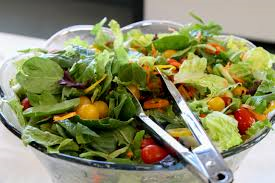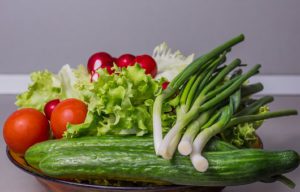Tips to Growing and Harvesting Great-Tasting Vegetables

Growing your very own homegrown vegetables from your backyard is a great way to nurture your food crops from seeds to harvest time, this is a good way to connect with nature, get in on some exercise while enjoying a hobby that has so many benefits. What I love about growing my own homegrown food crops is being able to harvest healthy crops, crops that are free of contamination.
But getting those veggies from the garden to the kitchen table requires some know-how, these simple but yet effective steps will help you to reap the fruits of your labor so with that said let’s take a closer look at maintaining our vegetable garden.
Start with a plan
Starting with a plan is the first step in the right direction because maintaining a vegetable garden that’s manageable starts with the beginning process, The planting site as far as location (adequate sunlight) is a concern along with right soil type is at the root of having garden success. The location and the soil type is the foundation on which to build.
A garden that is planted in the wrong location with soils that are not ideal will bring major issues that will cause maintaining a vegetable garden so challenging.
Let’s fast forward a few months down the road, you have taken all of the right steps, your veggies are growing nice and healthy, you are anticipating a great harvest to reap from the time spent working the soil but in order to keep things going smoothly, you know that maintenance work must be put in, here is what to do.
Watering methods
To keep your vegetables growing healthy know your veggie’s watering needs, overwater or saturated the soil. A rule is to keep the soil somewhat moist don’t allow the soil to dry out completely. The use of a drip irrigation system that delivers water in small amounts or watering by a hose which is manual labor will help greatly.
Weeds
Weeds can cause major issues when seeking to maintain a vegetable garden, weeds will compete with garden plants for water, sunlight, and nutrients will encourage disease, garden insect pests, and will take away from the beauty of your garden. Stay clear of herbicides these chemicals are a NO-NO when it comes to food crops.
Hand weeding may be laborious but it’s still the best way to go, to make hand weeding easier monitor your garden so as soon as weeds pop up remove them it is easy to use a garden hoe and turn the soil. Allowing weeds to get out of control will make it much harder in the maintenance process.
Garden insect pests
Garden insect pests is another issue that must be brought under control, the use of harmful chemicals on food crops is definitely a BIG NO. When seeking to bring garden insect pests under control identify first the insect pests follow by using organic sprays or homemade remedies that will keep your food crop safe.
Garden Lizards
Encouraging garden lizards is also a natural means of bringing insect pests under control. So consider going this route which will help.
Toads
Toads also have their place in the garden, some people see toads as nasty and a nuisance where their presence can do more harm than good. If you discover toads in your garden know that they are helping to bring garden insect pests under control by making a meal out of them.
Birds
Birds can also play a major part in your garden by feeding on garden insects pests these natural ways of ridding your garden of insect pests is how our ecosystem functions.
Debris free garden
Debris can make a vegetable garden look unattractive, besides being a breeding ground for insects, the removal of debris is so important in maintaining a garden that’s neat and clean.
Enriching the soil
Remember as mentioned earlier a good garden soil is at the root and survival of garden plants. Keeping your soil nutrient-rich is a must for healthy vegetables, the use of organics or compost will enrich the soil for your veggies. If your garden is established already then work organics in the first top few inches of soil. The ideal method is to work organic into the soil before planting and side-dress with organics twice doing the growing season.
A soil test
Sometimes this one is overlooked, having a soil ph test done is so important because if the soil ph is not adjustment will cause available nutrients to be locked up which means that garden plants can be nutrient staved in the midst of an abundance of nutrients. You can do the soil test yourself or hire a professional company to do the job for you.
Staking Plants
Veggies that are climbers should be staked to support them, the use of a trellis or some other form of staking will help your climbers. The ideal time to stake is at the time of planting.
Crop Rotation
Crop rotation is something to consider because garden insect pests will know where you’re planting the same crops each year so mix it up a bit. This will also help your veggies not to get disease easily.
Mulching
Mulching your garden is a great way to help suppress weeds, helps to conserve water and as the mulch breaks down or decomposes will add nutrients to the soil. A 2-3 inch layer of mulch will do.
Fertilizing your vegetable garden
When it comes to fertilizers the best choice is to go organic, quick release, synthetics or man-made fertilizers will cause plants to burn if used incorrectly. Organic fertilizer is all-natural which makes these fertilizers so good for vegetable gardens, some of these fertilizers are as followed.
- Worm Casting
- Blood Meal
- Bone Meal
- Mushroom Compose
Pruning
Removing yellow and dead leaves is a great way to keep your veggies looking healthy,
Resistance Varieties
If possible plant resistance varieties will make working in your garden so much easier.
Some veggies to include in your garden
Before planting a vegetable garden know all that you can about those vegetables to give them what they require. Information on those requirements can be found on the seed package or consult with your nurseryman.

1. Pumpkins.
2. Okras.
3. Corn.
4. Eggplants.
5. Lettuce.
6. Spinach.
7. Turnips.
8. Sweet Potatoes.
9. Kale.
10. Chilli Peppers.
11. Radishes.
12. Cauliflowers.
The final word
Maintaining a vegetable garden is that simple, all it takes is some know-how and you will be on your way to harvesting your very own homegrown vegetables by following these simple but yet effective steps. Over the years my love of these types of gardens has allowed me to grow many edible foods.
What is so great about these gardens is that you can save on that food bill because purchasing vegetables can be pretty costly. I have seen it many times from going to a few of the local food stores and looking at their prices. If you have a bed of flowering plants but would love to save on that food bill why not remove some of those flowers making space to plant your veggie garden.
Trust me you will be so happy that you did, this gives such a great feeling of watching your veggies grow and mature. With that said let’s get started on those veggies and join the many homeowners that have invested in such gardens and are enjoying the fruits of their labor.
About the author
Norman loves being in the garden, both at home and for his job....
he is 'Natures Little helper' being outdoors, growing his vegetables and flowers from an early age.
Now having spent over 22 years in the profession he want to give some of his knowledge to others...
his vast array of hints and tips you will find scattered over this site will help you no end growing plants in your garden.

Hi Norman! Thanks for sharing these exciting tips on maintaining a vegetable garden, they are indeed helpful. For me, I’ll also advice after planting your plants, add mulch around them to keep the soil cool, the weeds down, retain water and will also compost and add to the quality of your soil.
Thanks!
You are welcome and right with you have said. All the best to you.
I am delighted you have shared this post here and trust me, I love this post here. Maintaining a garden is not an easy thing to do. Also, I like the fact that we can expatiate more on the things needed in the garden to ensure proper gardening devoid of problems. Of a truth, I know of the benefits of rating birds in the garden too. Hence, this is a great one and I appreciate it. Thanks
As always Rodarrick I am so happy to help, maintaining a garden is not easy therefore proper planning should go into constructing from the begging to how it should be maintained. So happy to help you, my friend.
Hey, I enjoy a lot while reading your guide and find it very helpful for everyone. Starting with a plan is the first step in the right direction because to maintain a vegetable garden that’s manageable starts with the beginning process, Starting with a plan is the first step in the right direction because to maintain a vegetable garden that’s manageable starts with the beginning process,
Hello, Parveen I am so happy to help. It all starts with a plan in order to have success. Thanks so much for stopping by, all the best to you.
Thanks for giving me information on different aspects of tending and creating a garden which was cool. It just goes to show we can grow even grow in a small space giving us a variety of options. Great Colourful review thanks for the information and I look forward in coming back and reading some more.
Hello, I am so happy to help and thanks so much for those kind words. No matter how small space if we think outside of the box we can grow our very own healthy edible plants while saving those hard-earned dollars. Thanks again for stopping by, wishing you the best of success. Have a good day.